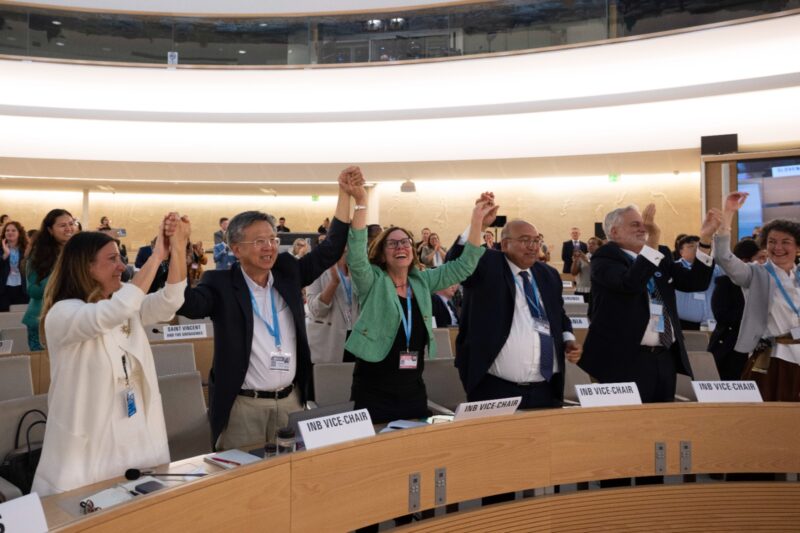WHO adopts pandemic agreement to boost health response
Decision made during 78th World Health Assembly, following over three years of negotiations.
ISLAMABAD: The World Health Organization (WHO) has adopted the first international pandemic agreement to improve global preparedness and response to future pandemics.
The decision was made during the 78th World Health Assembly, following over three years of negotiations.
The agreement was adopted by consensus in a plenary session, after 124 countries voted in favor, with no objections and 11 abstentions.
WHO Director-General Dr. Tedros Adhanom Ghebreyesus called it a major step forward for global health.
“The world is safer today thanks to the leadership and commitment of our Member States,” he said.
The agreement aims to ensure fair access to vaccines, medicines, and tests during health emergencies, especially for developing countries. It also outlines how countries should work together to prevent and respond to pandemics.
Dr. Teodoro Herbosa, President of the World Health Assembly, said the agreement is based on lessons learned from COVID-19 and urged countries to implement its key points quickly.
The agreement makes clear that WHO will not have authority to control national laws or policies. Countries will keep their sovereignty and will not be required to follow WHO directions on lockdowns, travel bans, or vaccine mandates.
Next steps include developing a system for sharing virus samples and ensuring that benefits, like vaccines, are fairly distributed. Countries also plan to set up systems to fund pandemic preparedness and manage global supply chains.
Once 60 countries ratify the agreement, it will officially come into effect. This is the second international agreement created under the WHO Constitution, after the tobacco control treaty in 2003.


Comments are closed.